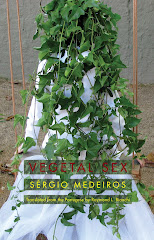
I attended a Symposium a couple of weeks ago at the University of Chicago's Library organized by the David Pavilich, Librarian of poetry and other things, on Poetry in Chicago.
The Event was a celebration of the acquisition of the papers of two Chicago institutions- Flood Editions and Michael Anania. The event was very tweedy-controlled and was set up as a celebration of the acquisition.
I did not stay for the portion by Anania which I understand was excellent- so I am not going to comment on that part but I was there for the Flood Editions portion and I have to say that it caused me to pause and ask a question- is poetry always condemned to be viewed as dilettantism in the USA?
There has always been a conflict in American poetry between the struggling gritty poet; Sandburg, Whitman, Brooks, Williams who lives in the 'world' and the poet dilettante, Pound, Dickinson, Lowell who live in rarefied air and whose engagement with poetry is separate from the grittiness.
During the section of the symposium on Flood Editions I kept asking myself what about Flood is particularly Chicago- apart from the fact that Michael O'Leary one of the editors lives here? Flood tends to publish very interesting poets who are experimental without regard for region and Flood tends to produce books that are really well crafted.
I think that the well crafted part is what makes Flood so Chicago. If you drive around Chicago the thing you notice is the solidity of the buildings. Brick, Stone and Cement. Chicago is not Dallas where the buildings all look like Paper Mac he- it is a solid place and that is what Flood does so well. Their books are well designed and solid. Their editorial choices are solid as well.
But having said all of this there was a waft of tweedy Hyde Park in the symposium.
One attendee asked a very salient question about diversity. This was not addressed and the room needed to have the discussion. I think that the thing that hurts poetry in the United States is lack of class diversity. There is not a lot of difference between a poet who is upper class and happens to be a woman or African American and someone who is of European origin. Yes they are victims of racism/sexism but their position of privilege is still intact. There is less at stake for an upper class poet...
This is what makes Poets like Ed Roberson , Nate Mackey or Mark Nowak so important because they are serious well educated poets whose work is in dialogue with bigger things. I kind of look at Mackey and Roberson are to Poetry as Michelle Obama is the Lawyers they came from normal origins and while they are exceptional- they have not forgotten where they arose.
I hope in the future that Class differences can be discussed in the Chicago Poetry Symposium and that local Chicago poets like Mark Tardi, Kimberly Lojek, Carlos Campian, Francisco Aragon, Ed Roberson and others who come from different class backgrounds and experiences are allowed to dialogue about what diversity really means- and to ask probing questions about the lack of class diversity in poetry.
Having said all this Pavilich needs to be praised for organizing the event- even if it was a little self-congratulatory for the the U of C- the reality is that the the University of Chicago does not really engage with Chicago or its poets and perhaps Pavilich can change this fact. Up to this point there is no place at the U of C that compares to say the University of Pennsylvania's Kelly Writer's house where the local literary community and the Ivy League can meet on common ground maybe this symposium will lead to that?





